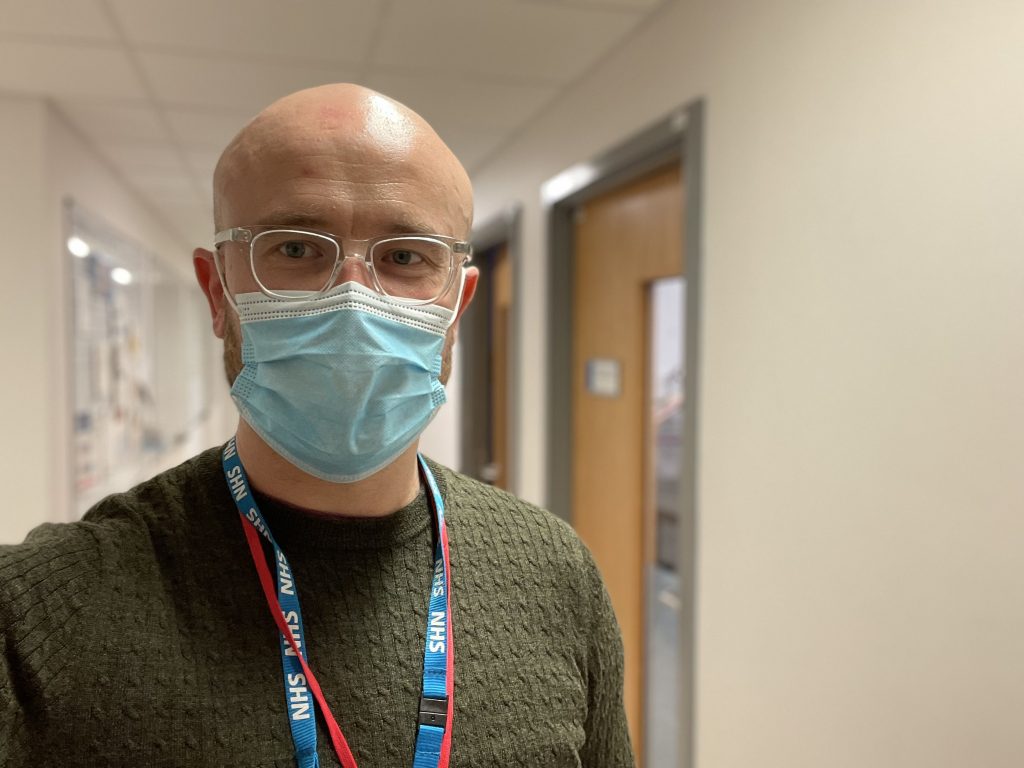The idea of working in an environment where you can lead your own career progression sounds appealing. But how many local authorities actually do that in practice?
At Lincolnshire County Council (LCC), the focus is on ‘growing your own’ and getting staff to shape that career progression according to their talents and aspirations.

Elysia Taru – level 2 social worker
This approach has helped Elysia Tairu remain in an area of adult social care that she loves while still having the opportunity to expand her expertise in leadership.
Elysia joined LCC’s hospital team at Pilgrim Hospital as a newly qualified social worker, and has progressed to a level 2 social worker role. Elysia continues to work with people directly and she now supervises four colleagues, supports team members on case discussions, and oversees team hub meetings to ensure people are medically fit to be discharged.
“My role means I have the best of both worlds,” she says. “I have the flexibility to go between my casework and my semi-managerial responsibilities, which allow me to do supervisions, case audits, and conduct meetings with other service leads within the hospital and therapy teams.”
Appraisal process
Elysia is now working towards becoming a practice educator and eventually would like to progress into other leadership roles once she has developed further foundations and expertise within her practice.
“I am passionate about hospital social work so I can’t imagine myself doing anything else at present, and I really enjoy helping other people learn through practice education.”
She believes LCC’s appraisal structure has helped to facilitate this process and aid her develop leadership and managerial skills.
LCC works to people’s strengths and will help them to take those little steps
“In my appraisals there are always goals – those that you set yourself and those that you are given support on – to ensure you can evidence your practice,” she says. “And that is what I like about LCC – there is a clear pathway.”
Simon Garner, workforce quality and development practitioner in adult care and community wellbeing, says: “I know in some places, appraisals are seen as a tick-box exercise but we’ve got a positive culture around supervision and appraisal, and a robust policy that works to try and meet people’s goals and objectives through support like dedicated CPD days. Our appraisal process works to people’s strengths and encourages them to take those little steps to grow.”
In addition to LCC’s appraisal process, staff are supported to build expertise that will support them in future job role. This is something that Michael Brain, lead practitioner within the adult social care hospital team based in Peterborough City Hospital, believes LCC does well. He was involved in Elysia’s transition from level 1 to level 2.

Michael Brain – lead practitioner
And under his role as lead practitioner, he works to embed and disseminate best practice and provide mentoring support for social workers and facilitate reflective practice groups.
“Level 2 positions give the opportunity to experience a lot of the lead practitioner’s responsibilities, such as management skills, but it is done in a supportive environment,” says Michael. “So, a number of times Elysia would have experienced these situations but would always have a lead practitioner around for support. She has now got to the stage where she can handle these situations independently and that’s a great skill to have for when she decides to become a lead practitioner. I think that is one of the strongest selling points of Lincolnshire for me.”
“For those wanting to become a practice educator or approved mental health professional, LCC encourages and supports people to expand their knowledge base. We also provide colleagues with the foundations to move up from frontline social work to the management route, in an organic way that is based on experience,” says Simon.
But it’s not always about becoming a manager or leader, as some team members are able to develop and become experienced social workers or community care officers (CCOs), a non-qualified role, with the right support within LCC.
Growing your own
Michael also likes how non-qualified staff are nurtured too. “At LCC, there is an emphasis on investing in the workforce that are currently here. And when I joined, I noticed that there was a high number of social workers that had started off as community care officers and worked their way up.”
Simon believes that is one of LCC’s assets.
“LCC works to people’s strengths and will help them work to take those little steps to bolster their confidence and nurture the best in them. So, for staff like the CCOs that don’t have the social work qualification, we still want to carry them along with the same momentum as we do qualified social workers through our social work apprenticeship scheme. We also launched the occupational therapist apprenticeship scheme earlier this year for staff wanting to pursue a career as an occupational therapist.”
Flexibility and trust

Photo: 3d_generator/Fotolia
Team members are also encouraged to develop their skills by using their talent to improve ways of working at LCC.
“If people can find a better way of doing something, we will find a way to streamline our processes and adopt it,” says Simon.
Staff who want to improve systems and gain expertise can become advocates in various specialties and can feed that information and development ideas back to management. Elysia is a Mosaic champion and helps her team with any process challenges using the software. There are also champions in other areas, such as finance and continuing healthcare.
These types of roles help to promote trust within the organisation and encourage staff to channel ideas that they can develop alongside their roles.
“Even from when I was newly qualified, they would let me go out doing the casework myself and feedback the outcomes to my manager,” says Elysia. “And that trust and ability to develop areas of interest has continued throughout my career. I do think it is quite an empowering environment to be in because you are able to make your own decisions but in a supported way, with feedback from managers.”
Future plans
This is something that Michael hopes to nurture as he progresses in his career.
“I like the idea of helping other people progress and would like to become a principal social worker or [look at any] opportunities [that] come up in workforce development teams or the ASYE programme. What I like is that LCC recognises something in someone individually rather than having a one-size-fits-all approach.”
Simon says: ”Social care is a rewarding place to work, it’s also busy and challenging. This is why our teams work so hard to ensure colleagues are supported. As a forward-thinking organisation, we recognise the need to ensure that training and development opportunities are matched up with support in teams including excellent supervision and appraisal.”
Interested in a career in Linolnshire Country Council’s adult services? Click here for more.




 Facebook
Facebook X
X LinkedIn
LinkedIn Instagram
Instagram